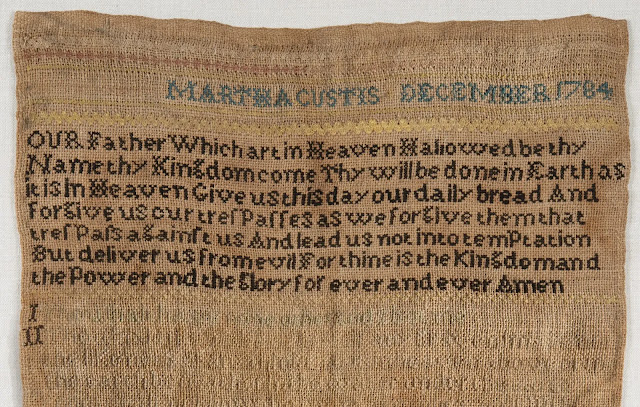Taking a Closer Look at Patrick Henry, Author of the Virginia Resolves
Patrick Henry (1736 - 1799) was a firebrand from Virginia during the early formation of our nation and the author of the Virginia Resolves. It's been said he was best known as a "fiery orator" and, in my opinion, he was a true Christian Statesmen.
Let's take a closer look at his religious beliefs which shaped his character and the mark he left upon Virginia and our nation.
Historic St. John's Church has a brief biography of Mr. Henry on their website and tells us this about his religious background:
"He was born in Hanover County to John and Sarah Syme Henry. Henry belonged to the Anglican Church and his uncle was an Anglican minister. Members of his mother’s family, however, were religious dissenters."Author Kelly Boggs of Baptist Press gives us more insight into Patrick Henry's Christian beliefs in an article he wrote in 2014 titled The Faith of Patrick Henry:
"He once said to a neighbor:
“'This book [the Bible] is worth all the books that ever were printed, and it has been my misfortune that I never found time to read it with the proper attention and feeling till lately. I trust in the mercy of heaven that it is not too late.'”
Mr. Bogg's also includes these quotes from Mr. Henry which reveal what a profound impact Jesus Christ and the Christian religion made in his life:
“'Amongst other strange things said of me, I hear it is said by the deists that I am one of their number; and indeed, that some good people think I am no Christian. This thought gives me much more pain than the appellation of Tory; because I think religion of infinitely higher importance than politics; and I find much cause to reproach myself that I have lived so long, and have given no decided and public proofs of my being a Christian. But, indeed, my dear child, this is a character which I prize far above all this world has, or can boast.'
"On his deathbed, Patrick Henry was reported to have said:
“'Doctor, I wish you to observe how real and beneficial the religion of Christ is to a man about to die…. I am … much consoled by reflecting that the religion of Christ has, from its first appearance in the world, been attacked in vain by all the wits, philosophers, and wise ones, aided by every power of man, and its triumphs have been complete.'
"On November 20, 1798, in his Last Will and Testament, Patrick Henry wrote:
“'This is all the inheritance I give to my dear family. The religion of Christ will give them one which will make them rich indeed.'”
Mr. Bogg's also includes this excerpt from the speech Patrick Henry made at St. John's Church, March 23, 1775, which is noted to have been a "more than a year before the Declaration of Independence was signed." I think after reading this text you will agree that he relied upon the Holy God of Israel and not just upon an arm of flesh to fight our battles and eventually give us victory (emphasis mine):
“Shall we gather strength by irresolution and inaction? Shall we acquire the means of effectual resistance, by lying supinely on our backs, and hugging the delusive phantom of hope, until our enemies shall have bound us hand and foot?
“Sir, we are not weak if we make a proper use of those means which the God of nature hath placed in our power. Three millions of people, armed in the holy cause of liberty, and in such a country as that which we possess, are invincible by any force which our enemy can send against us.
“Besides, sir, we shall not fight our battles alone. There is a just God who presides over the destinies of nations; and who will raise up friends to fight our battles for us. The battle, sir, is not to the strong alone; it is to the vigilant, the active, the brave.
“It is in vain, sir, to extenuate the matter. Gentlemen may cry, Peace, Peace but there is no peace. The war is actually begun! The next gale that sweeps from the north will bring to our ears the clash of resounding arms!
“Our brethren are already in the field! Why stand we here idle? What is it that gentlemen wish? What would they have? Is life so dear, or peace so sweet, as to be purchased at the price of chains and slavery? Forbid it, Almighty God! I know not what course others may take; but as for me, give me liberty or give me death!”
Please also see Patrick Henry Makes "Liberty or Death" Speech (christianity.com) and Patrick Henry's Liberty or Death Speech — Historic St. John's Church, 1741 (historicstjohnschurch.org) for the complete text of his famous speech.
There is so much more to know and appreciate about this Virginia Statesman which I intend to share in the near future. But be assured of this - he was instrumental in obtaining our independence from Great Britain. Patrick Henry was a virtuous man of integrity, much unlike the politicians of today who are often found to be corrupt, liars, covetous and inherently immoral.
Dear Lord,
I pray you will forgive our national sins and raise up leaders like Patrick Henry to turn America back to the true liberty and freedom found only in nations that acknowledge and follow Jesus Christ, and that the United States of America will once more be a country that serves as a beacon of light, hope and righteousness to other nations.
In Lord Jesus Name I pray, amen. - Mercy Adams







Comments
Post a Comment
Welcome! Please feel free to comment, but anti-Christian comments or profanity will not be tolerated. Thank you, ed.